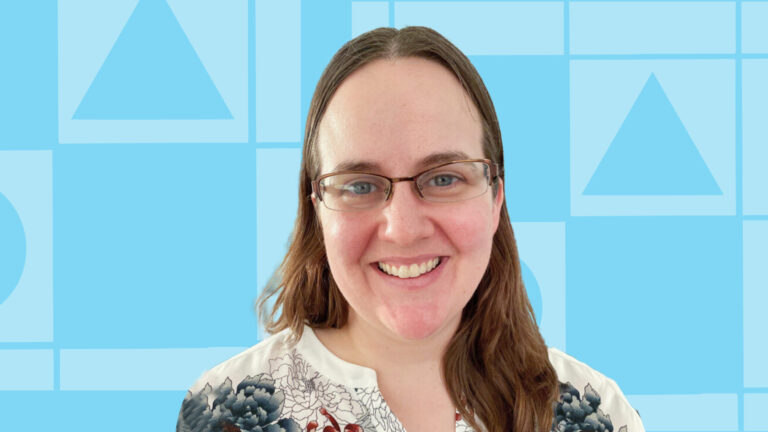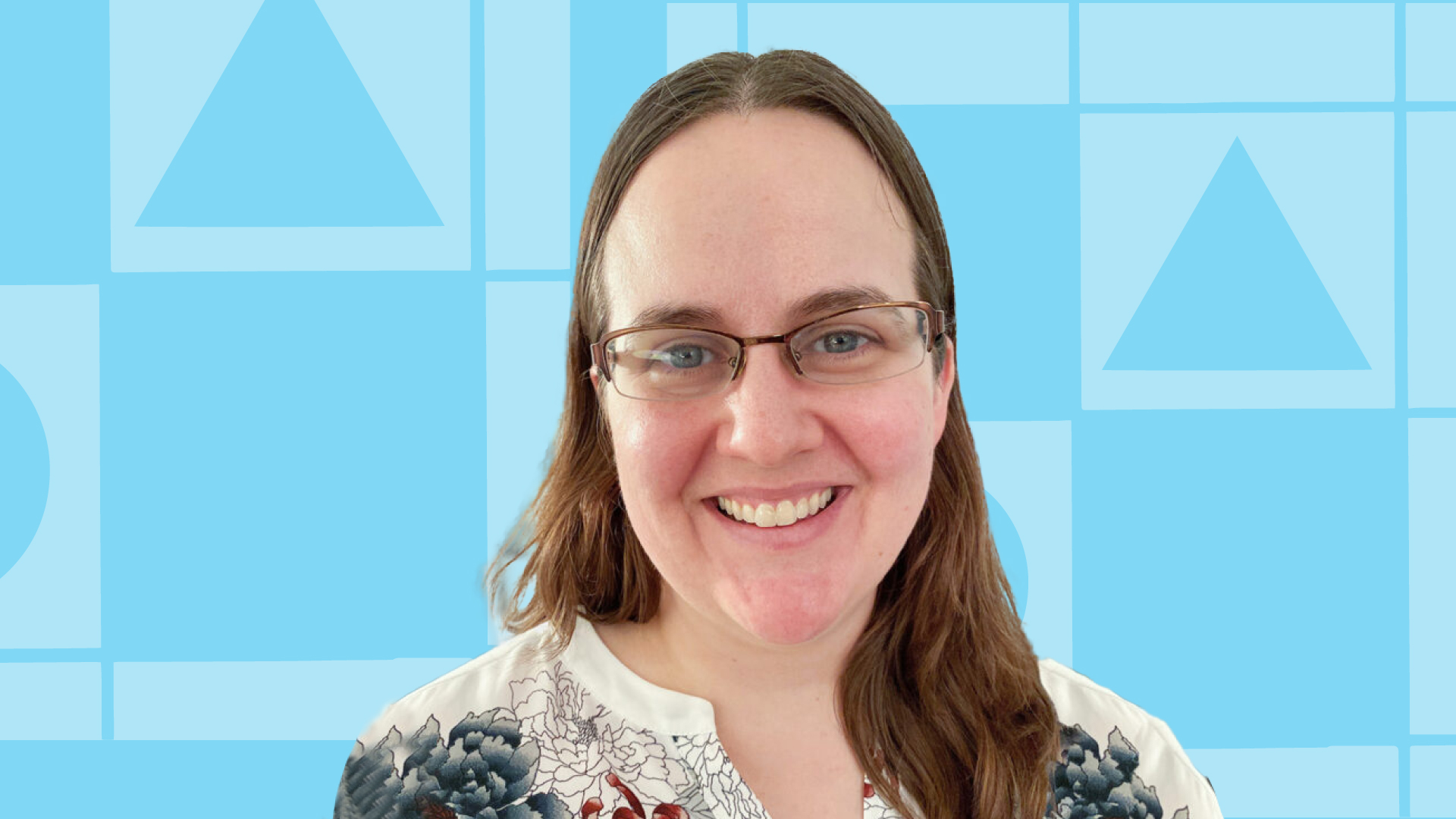
Heidel and her team are working on new technology in photonics and integrated circuits.
Nicole Heidel leads a team focused on photonics and integrated circuits in SRI’s Applied Physics Lab within our Advanced Technology and Systems Division (ATSD). Here, Heidel talks about her journey at SRI and the innovative solutions she’s been able to create:
I’ve been interested in semiconductors since college when I decided on a whim to take a class on integrated circuits as a freshman. I got my PhD in semiconductor devices and photonic integrated circuits from MIT in 2012 and then went to work at DARPA (Defense Advanced Research Projects Agency) as a contractor, working with the program manager who was sponsoring programs there. My position gave me incredible insight into the work that can be done in photonics. Working there also showed me the inner workings of how DARPA and contractors work together, which would help me in my career at SRI.
I started at SRI in 2016 with a focus in photonics, a field in which they were growing expertise. I was planning to move from Washington D.C. to Silicon Valley and I knew SRI was doing exciting work in the ATSD. But shortly after accepting, I found I had to stay in D.C. My manager, Jesse Wodin, fully supported my staying. I’m so thankful for his and for SRI’s support in allowing me to do this. SRI’s D.C. office had a handful of engineers, and the team and I got great at participating in meetings via teleconference.
I work on several challenging projects, all related to photonics and lasers. It’s a hodgepodge of exciting, challenging, and collaborative work – and that attracted me to SRI. My first few projects were around a distributed radar system, navigation, and precision timing and synchronization. I was fortunate to have an internal research and development (IRAD) project funded internally at SRI around microwave photonic work as well.
We have offices around the country with different equipment and expertise, and even before the pandemic we were able to collaborate digitally. It’s great to be able to work together even when we’re thousands of miles apart. That ability to share expertise and work online helped me move to Massachusetts in 2021 when my husband took a job here. I called Jesse—again—and told him I wanted to stay at SRI, but I had to move, and he was totally supportive. I loved the work I was doing and the talented teams we built in our Menlo Park, CA; Princeton, NJ; and Boulder, CO offices.
So, then it became: “How do I turn being remote in Massachusetts into a benefit?” It was a unique challenge, but I was excited for it. Having studied at MIT, I was able to re-establish relationships with folks there and other alums in the area and utilize some of the best labs in the world, which has been valuable to my success here. Boston is a great spot for photonics right now. It’s bustling with work. I’d encourage anyone to come up here and be a part of the future in this space.
We’re doing amazing things with photonic integrated circuits on these tiny chips. To make this happen, we’re collaborating across ATSD and outside of it. We work on quantum and atomic systems with our colleagues in Princeton and optical signal processing with folks in Ann Arbor and Menlo Park. Recently, we’ve been collaborating with our Biosciences Division on an entirely new platform for SRI—Waveguide Enhanced Raman Spectroscopy. This is something exciting for us, and only a few in the world are working on this technique. Raman Spectroscopy is based upon the interaction of light with the chemical bonds within a material on a chip, and we couldn’t do this without the help of our Biosciences team.
We’re just able to do fun stuff here at SRI; if you have an idea or want to try something new, this is the spot to do it. My team here is super smart and talented— it really is, “Hey, can we make this new thing and then measure it in a certain way? Is that going to work?” and we embrace that. We have so much flexibility and support not just in our lab or division, but across the institute.



